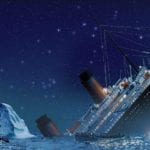 Weird Stuff
Weird Stuff  Weird Stuff
Weird Stuff  Mysteries
Mysteries 10 Tragic Disappearances and Deaths in Joshua Tree National Park
 History
History 10 Ways Childhood Really Sucked in the Old West
 Music
Music 10 Name Origins of Famous Bands from the 1990s
 Religion
Religion 10 Biggest Turnarounds by the Catholic Church
 Weird Stuff
Weird Stuff 10 Unbelievable Times Laws Had Unintended Consequences
 Humans
Humans Ten Historic Women Who Deserve Way More Credit Than They Got
 Movies and TV
Movies and TV 10 Films That Spawned Major Lawsuits
 History
History Ten Times Towns Were Wiped Off the Face of the Earth
 Creepy
Creepy 10 of the Most Disturbingly Haunted Public Houses in the UK
 Weird Stuff
Weird Stuff 10 Niche Subcultures That Are More Popular Than You Might Think
 Mysteries
Mysteries 10 Tragic Disappearances and Deaths in Joshua Tree National Park
 History
History 10 Ways Childhood Really Sucked in the Old West
Who's Behind Listverse?

Jamie Frater
Head Editor
Jamie founded Listverse due to an insatiable desire to share fascinating, obscure, and bizarre facts. He has been a guest speaker on numerous national radio and television stations and is a five time published author.
More About Us Music
Music 10 Name Origins of Famous Bands from the 1990s
 Religion
Religion 10 Biggest Turnarounds by the Catholic Church
 Weird Stuff
Weird Stuff 10 Unbelievable Times Laws Had Unintended Consequences
 Humans
Humans Ten Historic Women Who Deserve Way More Credit Than They Got
 Movies and TV
Movies and TV 10 Films That Spawned Major Lawsuits
 History
History Ten Times Towns Were Wiped Off the Face of the Earth
 Creepy
Creepy 10 of the Most Disturbingly Haunted Public Houses in the UK
10 Firsthand Descriptions Of How It Feels To Die
Death isn’t something we like to think about, but it’s something every one of us will experience. Few thoughts fill us with as much fear and dread. It’s easy to lie awake at night wondering what it will be like. Will it hurt? Will we be scared? Will there be release or just panic and pain?
Until it happens to us, we won’t know what comes after our last breath escapes. But we can get a pretty good idea of every moment leading up to it. There are people who have gone to the brink of death and back and who wrote down every sensation they felt along the way.
10 Shot In The Throat
George Orwell

The famous author George Orwell was shot in 1937. He was in Spain, fighting in their civil war, when a bullet pierced his throat. “The whole experience of being hit by a bullet is very interesting,” Orwell wrote after it happened, “and I think it is worth describing in detail.”
“Roughly speaking, it was the sensation of being at the center of an explosion. There seemed to be a loud bang and a blinding flash of light all around me, and I felt a tremendous shock—no pain, only a violent shock, such as you get from an electric terminal; with it, a sense of utter weakness, a feeling of being stricken and shriveled up to nothing.”
He didn’t know how badly hurt he was until he tried to move his arm. It didn’t respond. He tried to speak, but nothing came out. Then he heard one of the soldiers say that the bullet had gone clear through his neck. Orwell knew he was dying.
“My first thought, conventionally enough, was for my wife,” he wrote. “My second was violent resentment at having to leave this world.” It frustrated him that he’d died by stupid chance. “The meaninglessness of it!”
He couldn’t bring himself, though, to feel angry at the man who shot him. “If he had been taken prisoner and brought before me, at this moment I would merely have congratulated him on his good shooting.”
9 Death By Drowning
Grant Allen
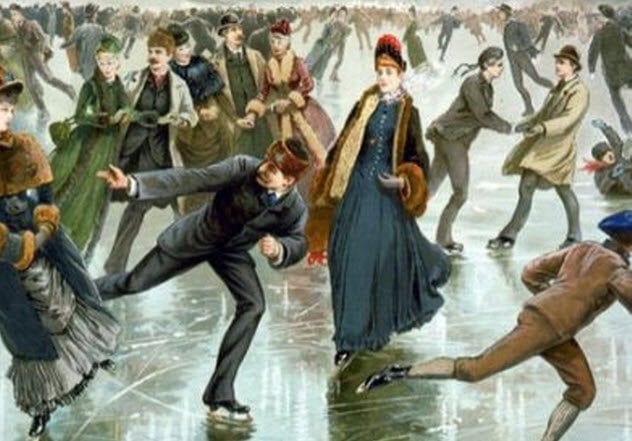
Grant Allen nearly drowned during a skating accident. For a moment, Allen insists, he was dead. “As far as consciousness goes,” he wrote, “I was then and there dead, and I never expected to be any deader.”
The ice beneath him cracked while he was skating, and Allen fell into the freezing water below. He tried to swim up to the surface but hit his head against the solid ice overhead.
Allen couldn’t think straight. “I was numbed with the cold and stunned with the suddenness of the unexpected dunking,” he wrote. Instead of looking for the hole he’d made, he started bashing his head against the ice, trying to break through.
“I gasped and swallowed a great deal of water. I felt my lungs filling. A moment of suspense, during which I knew perfectly well I was drowning, intervened; and then—I died.”
His life did not flash before his eyes. “On the contrary, I felt only a sense of cold and damp and breathlessness, a fierce wild struggle, a horrible choking sensation, and then it all was over.” His friends managed to pull him out and bring him back. But until then, Allen was clinically dead.
“The actual dying itself, as dying, is quite painless—as painless as falling asleep,” Allen wrote. “It is only the previous struggle, the sense of its approach, that is at all uncomfortable.”
8 Death By Snake Venom
Karl Patterson Schmidt

In 1957, snake expert Karl Patterson Schmidt was trying to identify a snake when he was bitten. Over the next 24 hours, he documented everything that he experienced as the venom took his life.
“4:30–5:30 PM,” he wrote when he got home. “Strong nausea but without vomiting during trip to Homewood on suburban train.”
An hour later, he added, “Strong chill and shaking, followed by fever of [38.7 degrees Celsius (101.7 °F)], which did not persist (blankets and heating pad). Bleeding of mucous membranes in the mouth began at about 5:30, apparently mostly from gums.”
He managed to get a couple hours of sleep but woke up at midnight. “Urination at 12:20 AM,” he noted. “Mostly blood but small in amount.” He woke up again a short time later in a violent fit of vomiting.
His last entry came at 6:30 AM. “Slight bleeding is now going on in the bowels, with frequent irritation at the anus,” he wrote. “Mouth and nose continuing to bleed, not excessively.” By lunchtime, he’d called his wife in a panic. When the doctors found him, he was in a sweat, unable to answer anything they asked. He was pronounced dead at 3:00 PM.
7 Death By Tuberculosis
H.G. Wells
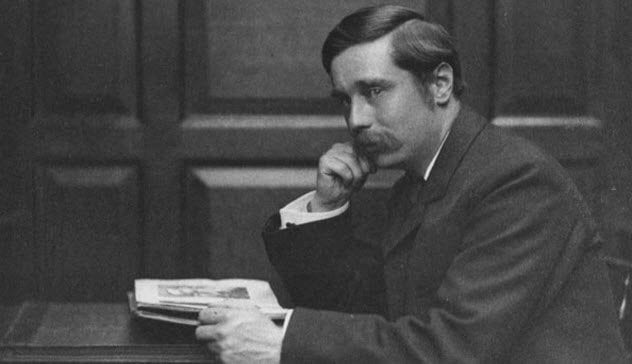
Science fiction writer H.G. Wells nearly died in the late 1800s when he was young. He had consumption, today known as tuberculosis. No one expected him to survive.
It struck him during a game of football. “There was a vast pain in my side. My courage failed me. I couldn’t run. I couldn’t kick,” he wrote. Wells excused himself and went inside. “In the house, I was violently sick. I went to lie down. Then I was moved to urinate and found myself staring at a chamber pot half full of scarlet blood. That was the most dismaying moment in my life. I did not know what to do. I lay down again and waited for someone to come.”
Later, the doctor told Wells that he had, at most, six months to live. Wells kept going to school while the illness ate away at his body. But at night, he had to deal with the thought of his imminent death.
“In my bones, I disliked the idea of dying,” Wells wrote. “I was exasperated not to have become famous, not to have seen the world.” Worse, though, were the unfulfilled sexual urges of a young, dying boy. “Still more deeply exasperated was I at the nets of restraint about me that threatened I should die a virgin.” He felt an uncontrollable rage against women for not sleeping with him.
The fear of nonexistence frightened him the most. “Though I disbelieved intellectually in immortality, I found it impossible to imagine myself nonexistent,” he wrote. “I had a nightmare sense of the approach of this conscious nothingness.”
Wells, of course, survived. His body fought off the sickness. His fear of disappearing into nothingness, though, changed his life. This was the moment that sparked his resolve to make his mark as a writer.
6 Death By Poisonous Gas
Kassem Eid
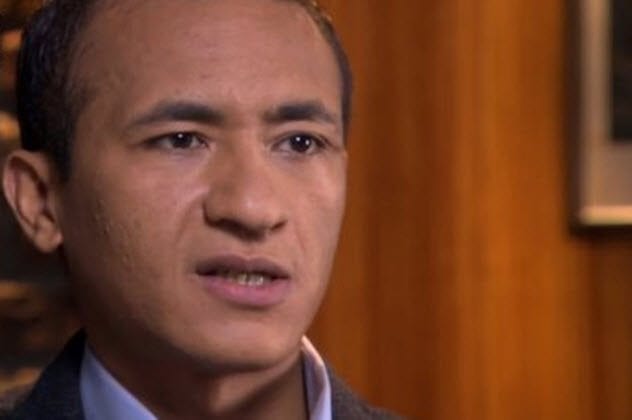
In 2013, Syrian rebel Kassem Eid was in Damascus when it was hit by sarin gas. He heard a rocket hit the ground, but it didn’t explode like he’d expected. Instead, gas started spilling out.
“It just took seconds before I lost my ability to breathe,” Eid said. “I felt like my chest was set on fire. My eyes were burning like hell. I wasn’t able even to scream or to do anything.”
He started pounding his chest, trying to force himself to breathe. “It was so painful,” he said. “It felt like somebody was tearing up my chest with a knife made of fire.”
His neighbor knocked on his door, begging for help. Her children were dying, vomiting some white substance out of their mouths. She and most of the others around didn’t make it out alive. “I watched hundreds of people die, suffocate. My heart practically stopped. And I was placed with the dead bodies.”
Eid was pulled out of the body pile when he managed to make a sign of life. He survived but went through hell getting there. “Dying this way,” he said afterward, “is one of the most ugliest ways of death people ever knew through history.”
5 Visions Of Heaven
Anita Moorjani
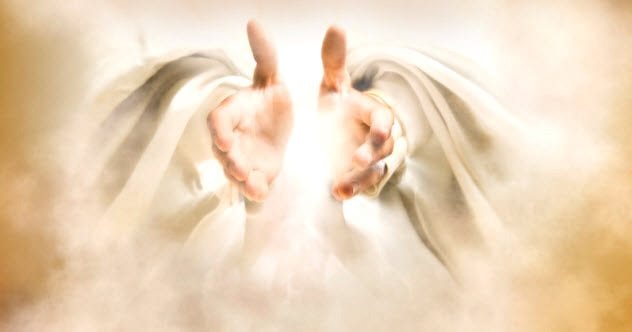
“It was wonderful,” Anita Moorjani said about her experience with death in 2006. She was dying of cancer with no hope of survival when she slipped into a coma. Moorjani, though, believes that it was something more—that she actually passed over to the other side.
“It is difficult to describe,” Moorjani said. “It was like I left my body and my consciousness had expanded, and I was everywhere, in a godlike state where I could see my loved ones and feel the presence of other souls.”
“When I went into this other dimension, I felt an overwhelming sense of love and peace. I felt no pain. I found out my purpose in life and what I must do. I realized that the solution to my cancer was always within me.”
After she came out of it, her body went through a miraculous recovery. Within four days, 70 percent of her cancer was gone. Within five weeks, she was completely healed.
4 Visions Of Hell
Matthew Botsford
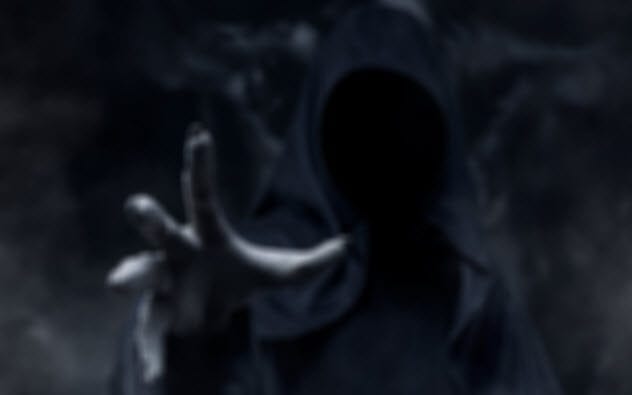
Not every vision of the afterlife is so peaceful. Like Moorjani, Matthew Botsford went into a coma and saw what he believes is a glimpse of the other side. But his vision wasn’t quite as cheery.
He had been shot in the back of the head. “I felt a hot, needlelike pierce, excruciatingly painful, for a brief instant at the top of my head,” he said. “Then utter darkness enveloped me as if thick, black ink had been poured over my eyes.”
For the next 27 days, his body was in a coma. But his soul, Botsford believes, was trapped in hell. “Reaching out only proved to me that I was actually contained in some sort of cell,” he said. “Cold permeated to the very marrow of my bones.”
He felt like he was naked, helpless, and surrounded by a demonic presence. “I could feel the actual pressure of evil pressing against my body,” he explained.
Other than the evil, he couldn’t feel much. “There was no breathing,” he said. “There were no thoughts at all. I had no thoughts of anything but hopelessness and dread, doom and gloom.”
3 Oldest Description Of Near-Death Experience
Pierre-Jean du Monchaux

The oldest description we’ve ever found of a near-death experience was written in the 18th century by Pierre-Jean du Monchaux, a French physician. He was treating a man with a fever who briefly lost consciousness. Du Monchaux wrote down what the man described.
“He reported having lost all external sensations,” du Monchaux recorded. “He saw such a pure and extreme light that he thought he was in Heaven. He remembered this sensation very well and affirmed that never in all his life had he a nicer moment.”
Du Monchaux had heard of this before. He said that records of these experiences went back at least to the 12th century when a theologian wrote, “At the moment approaching our body and soul dissolution, the latter is lit by a primary light ray.”
Du Monchaux didn’t believe it was a spiritual experience, though. “All the blood and humors flow abundantly,” he wrote, “and it is precisely this blood effusion that excites these vivid and strong sensations; it is its quiet and equal distribution that makes this sensation pleasant.”
2 Death From Cancer
Cris Gutierrez
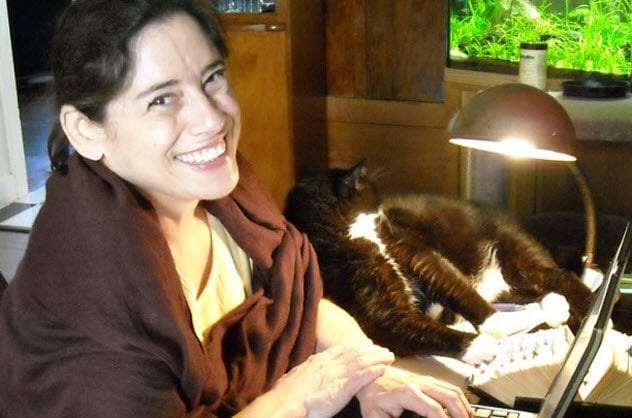
Cris Gutierrez kept a blog while she battled pancreatic cancer. When it was clear that she wouldn’t survive, she wrote one final entry, trying to describe what it felt like to be dying. She wrote, “You don’t want to die like this.”
“I’ve had a lung collapse twice. I’ve had edema that makes me look like a painting by Botero. Edema hurts to walk on. You can barely bend your knees to go down stairs. It can cause tissue breakdown and sepsis. I’ve had days when I’ve woken thinking that I was drowning because I had a throatful of bile and a burned stomach.”
She still felt angry. “I admit to some frustration,” she wrote. “I planned a real estate investment business, low end but with vision. I will never do this.”
Her biggest worry, though, was for her family and the people who cared about her. “I just want to die in not too much pain, surrounded by the ones I love,” she said. “The ones who must live with this agony are the ones who love me.”
1 Death In Palliative Care
The Scientific Community

Understanding death is such an obsession that it has become a science. A whole community of experts has studied it, drawing on each person’s distinct story to try to get the best possible idea of what death will feel like. Their knowledge isn’t firsthand, but it is drawn from the firsthand experiences of people in palliative care.
“First hunger and then thirst are lost,” says Dr. James Hallenbeck. “Speech is lost next, followed by vision. The last senses to go are usually hearing and touch.”
Usually, it doesn’t hurt. When death is slow and natural, the scientists say, there is no distress. Our perception, Dr. David Hui says, gets weaker as we die. “You may or may not even be aware of what’s happening.”
Dr. Jimo Borjigin says that seeing a light is common. “A lot of cardiac arrest survivors describe that during their unconscious period, they have this amazing experience in their brain,” she says. “They see lights, and then they describe the experience as ‘realer than real.’ ”
What comes after that light, though, is the one thing we can’t know. “Most dying people then close their eyes and appear to be asleep,” says Dr. Hallenbeck. “From this point on . . . we can only infer what is actually happening.”







